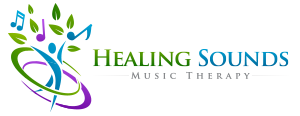Music Therapy Mythbusters!
 I meet a lot of people through networking lunches/coffees. When people hear that I’m a music therapist, they usually have lots of questions about what that is, who I work with, how it works, etc. And I also find that there are lots of misconceptions about music therapy out there– understandably, since it’s still a somewhat new and growing field. One of my recent networking connections suggested that I write a blog post spelling out the basics and FAQ’s of music therapy, so here it is!
I meet a lot of people through networking lunches/coffees. When people hear that I’m a music therapist, they usually have lots of questions about what that is, who I work with, how it works, etc. And I also find that there are lots of misconceptions about music therapy out there– understandably, since it’s still a somewhat new and growing field. One of my recent networking connections suggested that I write a blog post spelling out the basics and FAQ’s of music therapy, so here it is!
Myth #1:
A music therapist is a glorified performer/entertainer.
Truth:
A person can’t become a music therapist without being a pretty good musician to begin with, and yes– sometimes my group music therapy sessions are entertaining. But entertaining and performing are not the primary purposes of a music therapist in a therapy session. For every session, we have goals and objectives that we’re working towards with our client(s). Furthermore, we’re using a carefully planned and crafted music experience to help accomplish those goals. In order to do that, we have to know our clients (by completing an assessment/evaluation process ahead of time) and an awful lot about creating music in order to accommodate the needs of each client.
In one day, I have gone from providing Italian opera for one client to playing really old country western songs with another to singing children’s songs for an inter-generational group. That’s an extremely large repertoire of musical styles and abilities that not many performers/entertainers would have at their fingertips. Music therapists aren’t better or worse than professional musicians– we just use music differently.
Myth #2:
Music therapists teach people how to play music.
Truth:
If leaning to play an instrument would accomplish one of the client’s goals, then yes we teach a client how to play music. An example might illustrate this best. Say I have a client who needs to improve their finger dexterity/strength (goal). One of the ways we can work on that is through learning to play the piano. So in this instance I might teach the client the basics of playing the piano. But my primary objective is to improve their finger dexterity- not necessarily make them a great musician. They might become a great musician because their fingers work better (which would be a terrific side effect!), but that’s not why I teach them to play piano.
The goal of music teachers/educators is to teach people about music and how to play. The goal of music therapists is to improve the lives of our clients. You can watch my video on this topic here.
Myth #3:
Anyone who knows a little music can be a music therapist.
Truth:
In order to practice as a music therapist, a person must–
- complete a bachelor’s degree in music therapy
- finish a 6 month internship
- pass a certification exam
- re-certify every 5 years
Basic coursework in a music therapy degree program includes music (history, theory/composition, performance, basic knowledge of all instruments), psychology, biology/anatomy, statistics (we sometimes conduct research studies!), and music therapy.
Myth #4:
Listening to my relaxation CD after a rough day at work is music therapy.
Truth:
There is a difference between therapeutic music and music therapy. When you go hear a symphony concert, you might come away feeling inspired or relaxed or happy. When you play your favorite rock ‘n roll CD to help you clean the house, or a recording of ocean waves and quiet music to go to sleep– those are examples of therapeutic music experiences.
In order for it to be considered music therapy, a music therapist would need to evaluate your physical, emotional, psychological, and spiritual needs along with your music preferences and your responses to different styles of music. Then the music therapist would make suggestions and work with you to find the kinds of music that elicit the desired responses from you. A music therapist assesses the client’s needs, makes a specific plan using music to address those needs, and continually evaluates the effectiveness of that plan– it’s an active process. Therapeutic music is often a passive process– you listen/receive the music (like at a concert or listening to a CD) and feel an improvement, but you don’t have to do anything (except sit there or turn the CD player in).
Those are the four main myths I run across in my travels and networking. Do you have other questions or specifics you’re not sure about? Don’t hesitate to contact me! I’m always happy to answer any questions about music therapy!





